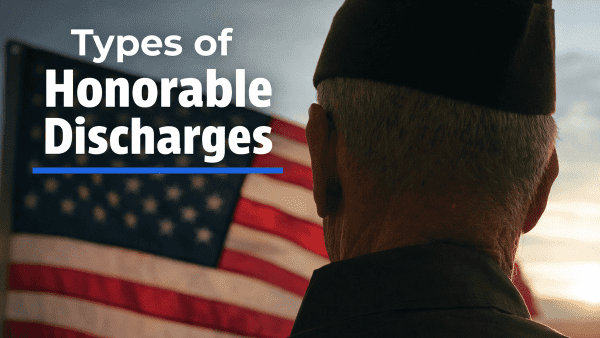Looking for Expert-Level VA Claim Answers?📱Call Us Now! 737-295-2226
An auditory processing disorder VA rating could unlock VA compensation and benefits you didn’t know you qualified for.
Auditory processing disorder (APD) isn’t just about hearing—it’s about how your brain understands sound. You might hear just fine, but still struggle to follow conversations, especially in noisy places like restaurants or crowded rooms.
Ready to learn more? Keep reading to find out how to qualify for an auditory processing disorder VA rating and start getting the compensation you deserve.
Table of Contents
Summary of Key Points
- Auditory processing disorder affects how your brain processes sounds, making it difficult to understand speech, especially in noisy environments, even when your hearing is normal.
- The VA rates auditory processing disorder based on how severely it impacts your ability to communicate, work, and function in daily life.
- Auditory Processing Disorder doesn’t have its own diagnostic code and may be rated analogously under a closely related condition.

What is Auditory Processing Disorder?
Auditory processing disorder (ADP), also called Central Auditory Processing Disorder (CAPD), isn’t traditional hearing loss.
Most people can tune into one voice in a noisy room, but if you have APD, background noise can overwhelm your brain, making it hard to follow what someone is saying, even if your hearing is otherwise normal.
A 2021 VA study found that this may be due to an auditory processing problem where the brain blends sound in a way that distorts speech.
Symptoms
Symptoms of APD can include:
- Difficulty understanding speech in noisy environments
- Trouble following conversations
- Frequently asking people to repeat themselves
- Confusing similar-sounding words
- Difficulty locating the source of sounds
Causes
Auditory processing disorder can result from various factors that impact how your brain interprets sound.
While some people are born with APD, others develop it over time due to injuries or environmental factors.
Common causes include:
- Developmental or neurological differences
- Traumatic brain injury (TBI) or concussion
- Blast exposure (common in military settings)
- Chronic ear infections
- Stroke or other brain-related conditions
- Long-term exposure to loud noise
Even with normal hearing, these factors can make it difficult for your brain to process speech, especially in noisy environments.
Is Auditory Processing Disorder a Disability?
Auditory Processing Disorder is recognized as a disabling condition under federal law. Although the VA doesn’t have a specific diagnostic code for APD, it may grant service connection for APD if there is sufficient evidence linking the condition to military service.
Once service connection is established, the VA rates APD analogously under the most closely related diagnostic code for compensation purposes.
Even though APD isn’t the same as traditional hearing loss, it can seriously impact your ability to communicate, work, and navigate everyday situations, especially in noisy environments.
The VA disability rating for auditory processing disorder typically depends on how significantly your symptoms affect your daily life, relationships, and ability to hold a job.
VA ratings can range from 0% to 100%, with higher ratings awarded when the condition severely limits your functional capacity.
You may also be eligible for Total Disability based on Individual Unemployability (TDIU) if APD makes it impossible to secure and maintain substantially gainful employment.
Hearing Loss vs. Auditory Processing Disorder
Hearing loss and auditory processing disorder are often confused, but they are distinct conditions that the VA rates separately.
APD is a neurological condition where the brain struggles to interpret and process sounds correctly, even when hearing is normal.
In contrast, hearing loss involves damage to the ears, making detecting sounds at specific frequencies challenging.
If you have APD, you may hear sounds clearly but have trouble understanding what you hear, especially in noisy environments.
-
Insider Insight: Looking for more information on hearing loss and VA compensation? Check out our post: How to Secure a Hearing Loss VA Rating.
How the VA Rates Auditory Processing Disorder
The VA’s rating schedule doesn’t include a specific diagnostic code for APD. As a result, APD is considered an unlisted condition and may be rated by analogy using the most closely related diagnostic code.
If APD mimics hearing loss in its functional effects, such as difficulty with speech discrimination, it may be rated analogously under the diagnostic code 6100 for hearing loss.
You may undergo the Maryland CNC Test to assess your speech understanding and a Puretone Audiometric Test to evaluate your hearing thresholds.
To qualify for a compensable rating, you’ll need to demonstrate:
- An auditory threshold of 40 decibels or greater in one of the specified frequencies (500, 1000, 2000, 3000, 4000 Hertz).
- An auditory threshold of 26 decibels or greater in at least three of the specified frequencies (500, 1000, 2000, 3000, 4000 Hertz).
- Speech recognition scores less than 94% without the use of hearing aids.
Linking Your APD to Active-Duty Service
To receive a VA disability rating for auditory processing disorder, you need to prove that your APD is service-connected.
To service connect your APD to your military service, you must provide evidence of:
- A current medical diagnosis
- An in-service event, injury, aggravation, or illness
- A medical nexus (link) between the current diagnosis and the in-service event, injury, aggravation, or illness.
-
Did You Know? A nexus letter from a medical professional can establish the link between your APD and your military service.
C&P Exam for Auditory Processing Disorder
You may need to attend a Compensation & Pension (C&P) exam to get an auditory processing disorder VA rating.
A C&P exam helps the VA determine how APD affects your ability to function in everyday life, especially regarding listening, communication, and work performance.
You may be asked questions about your symptoms, take hearing and speech tests, or complete tasks that assess how your brain processes sound.
The examiner may also review your service records, medical history, and any supporting evidence you’ve submitted.
Pro Tip: Go into your C&P exam prepared. Be honest and detailed about how APD impacts your daily life, especially in social or work settings.
See More: How Do I Know if My C&P Exam Went Well?
(FAQs) Frequently Asked Questions
Is APD a disability?
Yes, auditory processing disorder is considered a disability because it affects how the brain processes sound. The VA recognizes APD as a service-connected condition when it’s linked to your military service.
What is the central auditory processing disorder VA rating?
The VA may rate Central Auditory Processing Disorder analogously based on a closely related condition.
For example: If APD mimics hearing loss in its functional effects, such as difficulty with speech discrimination, it may be rated analogously under Diagnostic Code 6100 for hearing loss, with ratings ranging from 0% to 100%.
Is APD the same as hearing loss?
Not exactly. APD affects how your brain interprets sounds, while hearing loss involves reduced ability to detect sound. You can have normal hearing and still struggle with APD.
What tests are used to evaluate APD for VA claims?
If APD is rated analogously to hearing loss, tests such as the Maryland CNC word recognition test and Puretone audiometry are utilized for rating purposes. These help determine how well you hear and understand speech.
Can adults with APD get accommodations at work?
Yes. The Americans with Disabilities Act (ADA) protects adults with APD and gives them the right to reasonable accommodations at work. Examples include written instructions, noise-canceling headphones, quiet workspaces, closed captioning, or transcription tools.
Want Expert-Level Support for Your VA Disability Claim? WE GOT YOUR SIX!

- VA Claims Insider is the #1 most trusted name in VA disability claims.
- Work directly with a VA claims coach who can educate you to VA claim victory.
- 25,000+ disabled veterans have served in our membership programs since 2016.
- 30% average rating increase for veterans who complete our #1-rated Elite Program.
- 4.7/5.0 average rating out of 6,000+ total reviews; over 5,000 5-star reviews.
Author

Kelly Olone
Kelly Olone is a military spouse who earned her degree in Psychology from Florida International University. After working in the non-profit sector for several years, she turned to her passion for writing. She aims to contribute to a better understanding of the valuable benefits that veterans deserve. As a mom, Kelly navigates the delicate balance between deadlines and bedtime stories with finesse.



